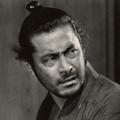Robin Marx reviewed Return of the Sword by E.E. Knight
Review of 'Return of the Sword' on 'Goodreads'
4 stars
This anthology focuses primarily on sword & sorcery tales, with a touch of historical adventure as well. As with all anthologies, some stories stood out more than others.
Neither "Mountain Scarab" by Jeff Stewart nor "Red Hands," a 1935 Cossack tale by Harold Lamb, directly involve the supernatural, but both are vigorous adventures with exciting swordplay.
Some of the best stories in the anthology have an element of humor. "To Be a Man" by Robert Rhodes involves an exhausted fellow trying to escape his lusty and bloodthirsty amazon-like bandit paramour. "An Uneasy Truce in Ulam-Bator," by Allen B. Lloyd & William Clunie, involves a spell gone wrong, turning a callow sorcerer and his barbarian mercenary into unlikely allies.
For me, the highlight of the book was "The Red Worm's Way," by James Enge and starring his Morlock Ambrosius character. The story combines weird occurrences and a creepy supernatural threat with …
This anthology focuses primarily on sword & sorcery tales, with a touch of historical adventure as well. As with all anthologies, some stories stood out more than others.
Neither "Mountain Scarab" by Jeff Stewart nor "Red Hands," a 1935 Cossack tale by Harold Lamb, directly involve the supernatural, but both are vigorous adventures with exciting swordplay.
Some of the best stories in the anthology have an element of humor. "To Be a Man" by Robert Rhodes involves an exhausted fellow trying to escape his lusty and bloodthirsty amazon-like bandit paramour. "An Uneasy Truce in Ulam-Bator," by Allen B. Lloyd & William Clunie, involves a spell gone wrong, turning a callow sorcerer and his barbarian mercenary into unlikely allies.
For me, the highlight of the book was "The Red Worm's Way," by James Enge and starring his Morlock Ambrosius character. The story combines weird occurrences and a creepy supernatural threat with clever twists and Morlock's wry wit.
While I wouldn't call it a misstep, necessarily, the inclusion of a writing advice article by E.E. Knight is a bit mystifying. While perhaps helpful to budding writers, the advice isn't particularly tailored to sword & sorcery fiction (Star Wars and Titanic are frequently used in the examples), and as the only non-fiction entry in the anthology it feels fairly superfluous.
Overall this is an entertaining look at fairly recent sword & sorcery (with the exception of classic author Harold Lamb) and wholeheartedly recommended to fans of the sub-genre.

